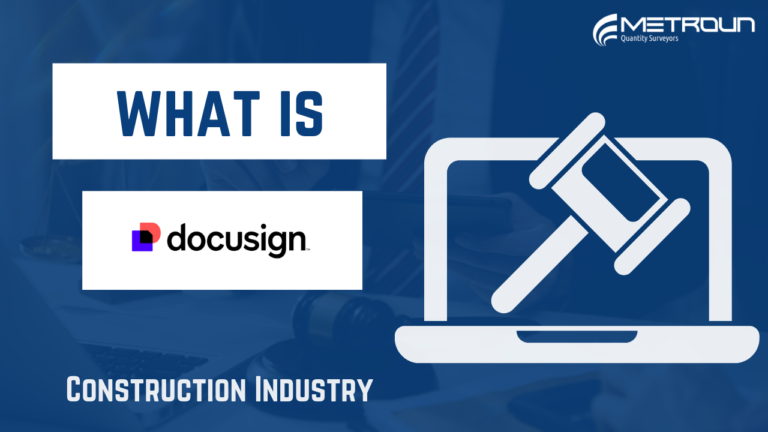The UK construction industry is known for its heavy paperwork—contracts, approvals, health and safety forms, and invoices. Traditionally, this meant endless printing, scanning, and chasing signatures, which slowed down projects and created room for errors. DocuSign changes this. It’s a cloud-based platform that allows users to sign, send, and manage documents electronically. With secure and legally binding digital signatures, DocuSign removes the need for paper and simplifies the entire process.
So, how is DocuSign used in UK construction, and what benefits does it bring?
What is DocuSign?
DocuSign is a secure digital tool for handling contracts and official documents. It allows businesses to:
- Sign documents electronically
- Send contracts and agreements instantly
- Manage and store documents in the cloud
Because DocuSign meets UK legal requirements for electronic signatures, it is recognised as valid and binding.
How DocuSign is Used in Construction
1. Contract Signing
Construction projects involve multiple contracts—main contracts, subcontractor agreements, and supplier deals. With DocuSign, these can all be signed quickly and legally online, reducing delays.
2. Change Orders and Variations
When project scope changes, new paperwork is needed. DocuSign allows fast approval of change orders and variations, so projects keep moving without hold-ups.
3. Health and Safety Compliance
Health and safety is a top priority. With DocuSign, risk assessments, safety plans, and worker certifications can be signed and stored digitally, making compliance checks easier.
4. Project Approvals
Approvals for designs, materials, or milestones no longer require face-to-face meetings. Stakeholders can review and approve documents remotely using DocuSign.
5. Invoicing and Payment Authorisation
Cash flow is crucial in construction. DocuSign speeds up the signing of invoices and payment approvals, helping to keep payments on track.
6. Subcontractor and Supplier Agreements
DocuSign reduces delays in procurement and mobilisation by streamlining agreement sign-offs with subcontractors and suppliers.
7. Secure Document Storage
All signed documents are stored electronically with a full audit trail. This makes compliance checks, record-keeping, and audits easier and more reliable.
8. Remote Collaboration
Construction teams often work across different sites. DocuSign allows documents to be signed from anywhere, making collaboration between on-site and remote teams seamless.
Benefits of DocuSign for the Construction Industry
Using DocuSign brings several key advantages:
- Speed: Faster approvals and signatures accelerate project timelines.
- Compliance: Meets UK legal requirements for digital signatures.
- Sustainability: Reduces reliance on paper, supporting green targets.
- Security: Encrypted signatures and audit trails protect sensitive documents.
- Remote Access: Enables teams to collaborate from any location.
Final Thoughts
The construction industry is under pressure to deliver projects faster, safer, and more sustainably. DocuSign helps meet these challenges by digitising paperwork, improving collaboration, and enhancing security.
For contractors, project managers, and suppliers, adopting tools like DocuSign is no longer optional—it’s an essential step toward efficiency and competitiveness in modern construction.
Find out how we can help you at metroun.co.uk










